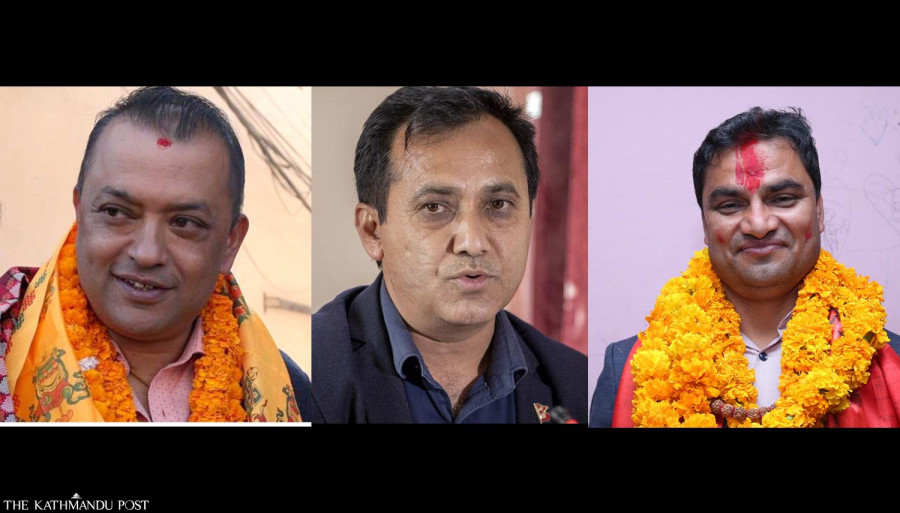Editorial
Young hope
Do the young leaders have it in them to defeat Deuba in the race for parliamentary party leader?
If established political parties had any doubt that the political space they long occupied could one day be forcefully claimed by new political forces, the results pouring in from all over the country should make the message loud and clear. The rise of new political forces that seemed far-fetched until recently is becoming a reality—first with the victory of independent candidates in local elections, and now with the wins of candidates representing the newly formed Rastriya Swatantra Party. That the old parties are losing touch with the contemporary Nepali society is no news; but the continuing dominance of the same parties (except for the recent dent) means their demise will be painfully slow, if not impossible. This also means the established parties have time to reimagine their politics and be relevant all over again.
Even as several septuagenarians like Sher Bahadur Deuba, Ram Chandra Paudel and Shekhar Koirala continue their run in politics, the young ones now have a stronger narrative to build about the need for younger leadership. An obvious reference for them now could, again, be the rise of the Rastriya Swatantra Party primarily because of people’s frustration with the functioning of established parties. The narrative that they need is that of change—among the established parties themselves.
The first question that comes to mind when thinking about the regeneration of political parties is who will take the lead in this crusade. The old guard has for too long been reluctant to reimagine the way their parties function. The young guns have hitherto been unable to bring substantial changes in this functioning. If the emerging electoral results are anything to go by, the CPN-UML is going to be bereft of second-tier leaders except for a few including KP Sharma Oli, as many of his acolytes have lost. The Maoist Centre, which is again doing poorly in election results, has hardly ever shown an inclination to change party dynamics as Pushpa Kamal Dahal continues to rule the roost.
The Nepali Congress is doing pretty well with the re-election of Gagan Thapa and the election of Bishwa Prakash Sharma and Pradip Paudel. The narrative built by Thapa as a claimant to the post of next prime minister seems to have resonated with voters not only in his constituency but also in other places of the country. A well-calibrated campaign by taking into confidence second- and third-generation leaders could help shake the power positions of those like Deuba who continue to cling on.
The performance of Sagar Dhakal in Dadeldhura suggests even a den as secure as Deuba's can be broken with sustained political intervention. But do the young leaders have it in them to launch a sustained campaign to defeat Deuba in the race for the leader of the parliamentary party? If they help re-imagine the way the party functions, both in parliamentary politics and in the exercise of internal democracy, remains to be seen. If they do not dare do so in the upcoming parliament, they will end up ceding more political space to newer outfits.




 13.12°C Kathmandu
13.12°C Kathmandu














